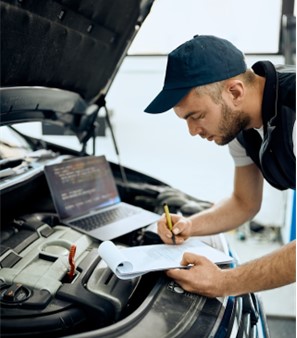
Protection Direct in Illinois offers auto coverage for costly vehicle repairs. In the following article, Protection Direct in Illinois highlights the importance of pre-vacation car care and provides tips for protecting your vehicle during summer travels. Summer is the perfect time for road trips and adventures, but before hitting the open road, it's essential to ensure that your car is in top condition. Proper maintenance and preparation can help prevent breakdowns and ensure a smooth journey.
Protection Direct in Illinois on the Importance of Pre-Vacation Car Maintenance
Before embarking on a summer road trip, it's crucial to give your car a thorough inspection. Checking key components such as fluid levels, tire pressure, brakes, and air conditioning can help prevent potential issues and ensure optimal performance during your journey. Neglecting basic maintenance tasks can lead to breakdowns, delays, and even accidents, ruining your vacation plans. By taking the time to inspect and maintain key components of your vehicle, you can significantly reduce the risk of encountering problems on the road. A well-maintained car not only ensures a safer and more enjoyable trip but also provides peace of mind knowing that you're prepared for whatever the journey may bring. So, before you set off on your summer road trip, invest a little time in a thorough car inspection – your future self (and your travel companions) will thank you.
Tips for Preparing Your Car for Summer Road Trips
Fluid Levels
- Engine Oil: Check the engine oil level and its condition. Fresh oil lubricates the engine's moving parts, reducing friction and preventing overheating. If the oil appears dirty or has a burnt smell, it's time for an oil change.
- Coolant: Ensure the coolant level is adequate and the fluid is in good condition. The coolant prevents your engine from overheating, which is especially important during the hot summer months. Top off the coolant if necessary and look out for any leaks in the cooling system.
- Brake Fluid: Low brake fluid can affect braking performance, posing a safety risk. Check the brake fluid level and top it off if needed. If the fluid is dark, it might need to be replaced.
- Transmission Fluid: Proper transmission fluid levels are essential for smooth gear shifts and overall transmission health. Low or dirty transmission fluid can cause transmission failure.
- Windshield Washer Fluid: Ensure you have enough washer fluid to keep your windshield clean and improve visibility. Summer road trips often mean dealing with bugs and dust on the windshield.
Tire Pressure and Condition
- Tire Pressure: Properly inflated tires improve fuel efficiency, handling, and safety. Check the tire pressure, including the spare, and inflate them to the manufacturer's recommended levels. Underinflated or overinflated tires can lead to poor handling and increased risk of blowouts.
- Tread Depth: Inspect the tread depth of your tires. Worn-out tires can reduce traction, especially on wet roads, and increase the risk of hydroplaning. Replace any tires that have insufficient tread depth.
- Tire Condition: Look for any visible signs of damage, such as cracks, bulges, or punctures. Damaged tires should be replaced immediately to avoid the risk of a blowout on the road.
Brakes
- Brake Pads and Rotors: Inspect the brake pads for wear and the rotors for any signs of damage or warping. If you hear squealing or grinding noises when braking, it’s a sign that the brake pads need to be replaced.
- Brake Performance: Test the brakes for responsiveness. Soft or spongy brakes may indicate air in the brake lines or a problem with the brake fluid. Address any issues promptly to ensure reliable braking performance.
Air Conditioning
- Functionality: Test the air conditioning system to make sure it’s working effectively. A functional AC system is crucial for comfort during a summer road trip, especially in hot climates.
- Refrigerant Level: If the AC isn’t cooling as it should, it might be low on refrigerant. Have a professional check and recharge the refrigerant if necessary.

Additional Checks
- Battery: Ensure the battery terminals are clean and the battery is securely mounted. Check the battery charge and consider replacing it if it’s old or showing signs of weakness. A weak battery might not have the power to start your car, especially after running accessories like the AC or stereo.
- Lights: Test all the lights on your vehicle, including headlights, brake lights, turn signals, and hazard lights. Properly functioning lights are essential for visibility and safety, especially when driving at night or in adverse weather conditions.
- Wiper Blades: Inspect the windshield wiper blades for any signs of wear or damage. Replace them if they are leaving streaks or not clearing the windshield effectively. Good wiper blades are essential for maintaining visibility during rain.
- Belts and Hoses: Check the condition of all belts and hoses under the hood. Look for any signs of cracks, fraying, or leaks. Damaged belts and hoses can cause your car to overheat or break down.
- Emergency Kit: Ensure your car has an emergency kit that includes items like a spare tire, jack, jumper cables, first-aid kit, flashlight, and basic tools. Having these items can help you handle minor issues without significant delays.
Significance of Auto Protection Measures
Protection Direct in Illinois notes that in addition to regular maintenance, it's essential to have adequate auto protection measures in place to safeguard your vehicle and ensure peace of mind during summer travels. Comprehensive vehicle coverage, roadside assistance plans, and emergency kits are essential components of auto protection. Auto Protection Coverage: Invest in comprehensive auto coverage to protect your vehicle against various risks, including accidents, theft, vandalism, and natural disasters. Comprehensive coverage provides financial protection and peace of mind, especially when traveling long distances. Additionally, consider adding auto repair coverage, as many service companies do not help with common repairs. This will save you money in the long run, as many common repairs can cost thousands of dollars on average. Many of these plans offer roadside assistance, towing and rental car options. Emergency Kits: Prepare a well-stocked emergency kit to keep in your car during summer travels. Include items such as a flashlight, batteries, a first aid kit, blankets, bottled water, non-perishable snacks, a multi-tool, and a reflective warning triangle. Having an emergency kit on hand can help you stay safe and comfortable in unforeseen circumstances.
Benefits of Regular Vehicle Inspections and Preventive Maintenance
Protection Direct in Illinois reports that regular vehicle inspections and preventive maintenance are essential for identifying potential issues before they escalate into major problems. By scheduling routine maintenance tasks such as oil changes, tire rotations, brake inspections, and fluid flushes, you can prolong your car's lifespan, improve fuel efficiency, and minimize the risk of breakdowns. Additionally, staying proactive with maintenance helps maintain your vehicle's resale value and ensures a safer and more enjoyable driving experience for you and your passengers.
Conclusion
Preparing your car for summer travels requires careful planning and attention to detail. By following these tips and prioritizing pre-vacation car maintenance, you can protect your vehicle and enjoy a hassle-free road trip. Protection Direct in Illinois says to remember to invest in auto protection measures such as comprehensive vehicle coverage, roadside assistance plans, and emergency kits to stay prepared for any situation that may arise on the road. With proper preparation and preventive maintenance, you can embark on your summer vacation adventures with confidence and peace of mind.

